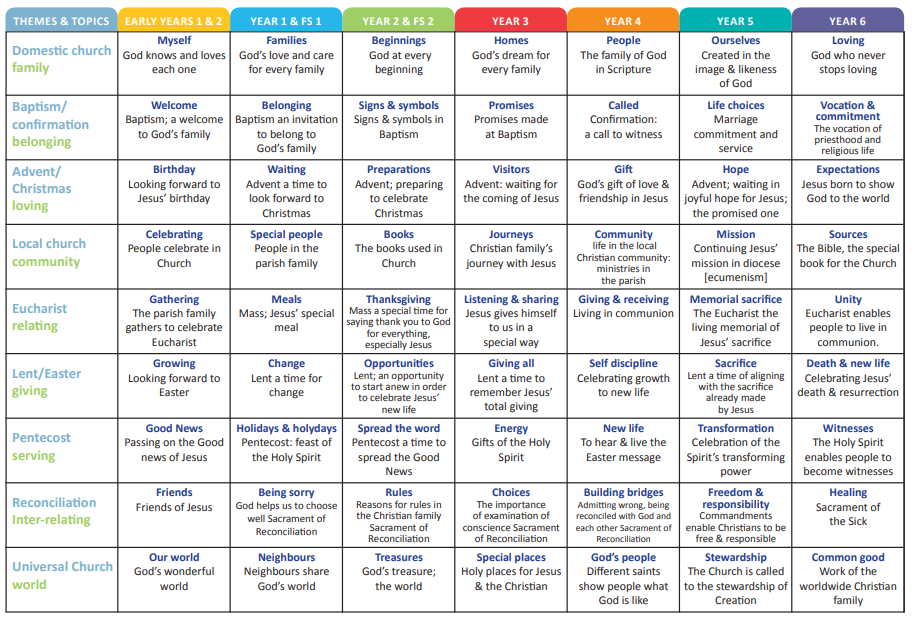Religious Education

Please click on below links to view our School Policies.
At St Mary’s, Religious Education is central to our curriculum, supporting our mission to nurture the whole child – academically, personally and spiritually.
As a Catholic school, 10% of our curriculum time at St Mary’s is given to the teaching of RE, ensuring it is a cornerstone of our children’s education.
We follow the ‘Come and See’ Religious Education Programme in line with guidance from the Southwark Archdiocese. This programme is followed throughout school from Nursery to Year 6.
In the Come and See scheme, nine themes run through the year and each year group studies the same theme through year appropriate topics.
We also have two weeks where we focus on other world religions, fostering a spirit of respect and understanding for diverse beliefs and cultures.
Each term three RE topics are taught from the ‘Come and See’ programme.
The ‘Come and See’ programme provides:
- Opportunities for celebration, prayer and reflection in implicit and explicit ways.
- Opportunities to meet the needs of all learners through creative, engaging and stimulating lessons.
- A ‘literacy’ in scripture, religious celebrations, places, stories, symbols and people. Children have an opportunity to explore and analyse scripture and to make links between scripture, belief and practice.
- A ‘systematic presentation of Church, Sacrament and Christian way of life’ in ways appropriate to the age and stage of development of the child. These themes are revisited each term in each year group to enable pupils to retrieve and deepen their knowledge and understanding about the key concepts and practices.
- Appropriate materials for teaching about other faiths.
- Academic respectability and equality as in other curricular areas – utilising appropriate stages from the National Curriculum.
At the centre of each RE topic is the ‘Big Question’. This encourages all children to have an opportunity to develop their critical thinking skills, to respond spiritually, to ask questions and to look at the world with awe and wonder.
Our parish priest and Deacon support our RE curriculum by visiting the classes to talk about the sacraments of Baptism and Ordination.
Judaism is studied every year from Nursery to Year 6 in the Autumn Term. Sikhism, Islam and Hinduism are taught on a three-year cycle in the Summer Term.
Visits to places of worship are integral to the teaching of other faiths.
We aim to nurture thoughtful, informed, and compassionate individuals who are prepared to contribute positively to our global society. They are knowledgeable about God’s love, they learn about the Christian responsibilities and are provided with experiences of Catholic traditions and way of life. Our children learn about their unique place within the home, school, parish and global community. This impacts their choices and actions, and they know and understand that they have a responsibility to and for others. The study of a range of religions and cultures encourages children to be respectful and knowledgeable citizens.
Religious Education Curriculum Overview

Scripture Overview
Please click here to view the RE Scripture Grid Cross Reference
